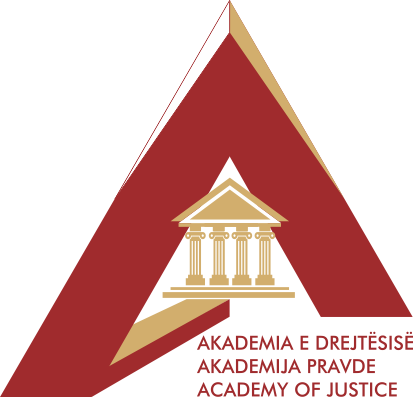
 ACADEMYOF JUSTICE
ACADEMYOF JUSTICE
On June 28 2018, Academy of Justice within its continuous training program organized the training on “Legal grounds for setting enforcement”.
Purpose of this training was to extend the judges knowledge about legal grounds for setting enforcement.
First part of the training elaborated on the role and importance of the enforcement institute, decisions, remedies and object of enforcement. While second part of the training elaborated on legal grounds for setting enforcement and actions of the enforcement entity. In this context, it was discussed on what the proposal for enforcement shall contain, what is the procedure for proposal review, procedure for setting enforcement, content of the ruling for enforcement and of the enforcement order.
The elaboration continues on highlighting that the Law on Inheritance has foreseen basis for claiming inheritance, legal order of inheritance, judicial procedure which deals with the examination of the hereditary estate of the decedent and the heirs of the inheritance indispensable part. On the other hand, court practice has difficulties and dilemmas on setting the volume of the indispensable part and persons entitled to this right, as well as on issues that relate to the basis for claiming inheritance and the inheritance legal order.
This training also contributed to removing dilemmas and unification of the court practices on the aforementioned issues, particularly in the part pertaining to competence for carrying out the procedure for reviewing the inheritance estate, is it the court or notaries (because of non-harmonization of provisions of the Law on Inheritance and the Law on Uncontested Procedure with the Law on Notary). Afterwards it was emphasized that delays in enforcement of civil judgments in courts of Kosovo, are severely damaging the right to a fair trial within a reasonable time, as well as the rule of law in general.
Whereas for the private system of enforcement, it was highlighted that it has an advantage of removing the responsibility of the enforcement process from judges and court enforcement officials. These responsibilities are carried to private enforcement officers, but role of courts remains important because in more sensitive cases like family matters, continue to be handled exclusively by courts, also legal remedies matter is on court to decide, as well as another very important function – the supervision.
During this training participants were provided training handouts and they discussed and analyze case studies, as well as elaborate correctly provisions of the Law on Contested procedure.
Beneficiaries of this training were judges of basic courts – general department – civil division.
28-06-2018